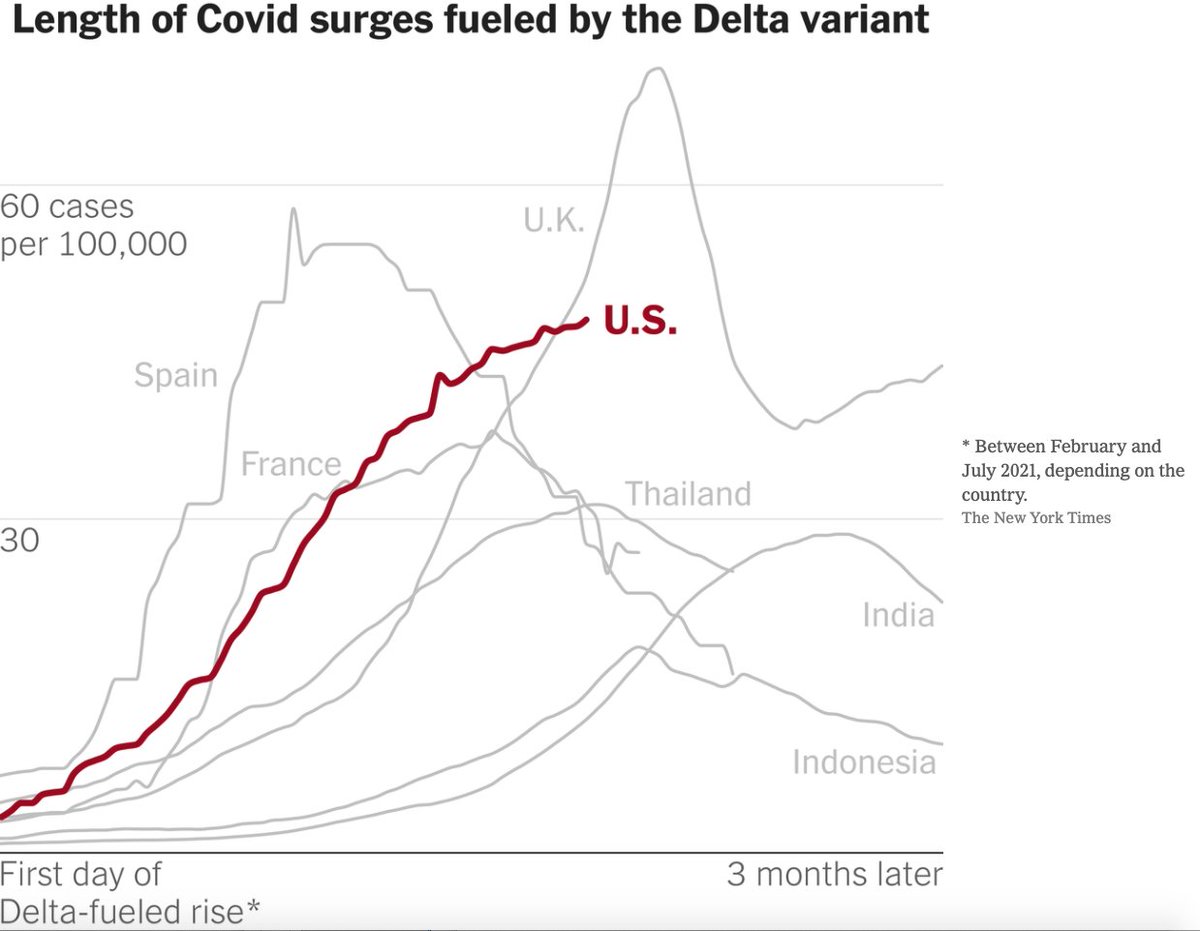
Should people who got a J&J shot be getting a follow-up shot from Moderna or Pfizer?
🧵
🧵
From the start, J.&J.’s single-shot vaccine has appeared to be less effective than the two-shot vaccines from Moderna and Pfizer. The J.&J. shot still provides good protection against serious illness, but not as much as the others. And the Delta variant may be widening the gap.
Federal officials have suggested they are likely to approve a booster shot for J.&.J recipients eventually. But any approval seems to be weeks away, if not months.
Regardless, many J.&J. recipients are less interested in receiving a second J.&J. shot than in getting a follow-up shot with either the Moderna or Pfizer vaccine — sometimes known as a “mix-and-match” approach.
Many experts believe that this approach will be effective, maybe even more effective than two shots of the same vaccine. Britain has used this strategy, giving many people who received the AstraZeneca vaccine (which is similar to J.&J.’s) a second shot with Moderna’s or Pfizer’s.
But there is still not much data on the benefits or the risks of combining a J.&J. shot with a different vaccine.
Numerous doctors and experts who themselves received the J.&J. vaccine aren’t waiting for the government to act. They have gotten a follow-up Moderna or Pfizer vaccine. San Francisco also began offering a Moderna or Pfizer booster shot to J.&J. recipients about a month ago.
When Rochelle Walensky of the CDC was asked whether she considered it a mistake for J.&J. recipients to pursue a Moderna/Pfizer follow-up shot, she said, “Not with what I’ve seen so far.” From the head of a notoriously cautious agency, that was a remarkable and telling statement.
Getting a follow-up shot with the Moderna or Pfizer vaccines may not be easy. Doctors often refuse to give them. Many people are understandably frustrated: It can feel like there is one set of rules for people with medical connections and another set of rules for everyone else.
Still, if you want a shot, you have a few options. You can try different drugstores, hoping to find one willing to give a Pfizer or Moderna shot to a J.&J. recipient — or one that won’t ask about your history. You can also choose to be less than fully honest. You won’t be alone.
The case for: The available evidence suggests you will benefit. There are no signs of worrisome side effects so far. And the Delta variant is bad. By waiting, you may be allowing bureaucratic caution to get in the way of your health. nytimes.com/2021/09/13/bri…
The case against: A single shot of J.&J. still provides good protection, and the government may soon allow a second shot. There is not yet rigorous data on mix-and-match with J.&J. And you may need to resort to some deviousness to get another shot. nytimes.com/2021/09/13/bri…
I understand why so many people are flummoxed.
(fun)
(fun)
• • •
Missing some Tweet in this thread? You can try to
force a refresh






